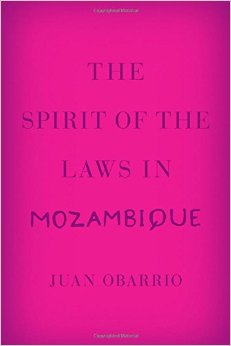Mozambique has been hailed as a success story by the international community, which has watched it evolve through a series of violent political upheavals: from colonialism, through socialism, to its current democracy. As Juan Obarrio shows, however, this view neglects a crucial element in Mozambique’s transition to the rule of law: the reestablishment of traditional chieftainship and customs entangled within a history of colonial violence and civil war. Drawing on extensive historical records and ethnographic fieldwork, he examines the role of customary law in Mozambique to ask a larger question: what is the place of law in the neoliberal era, in which the juridical and the economic are deeply intertwined in an ongoing state of structural adjustment?
